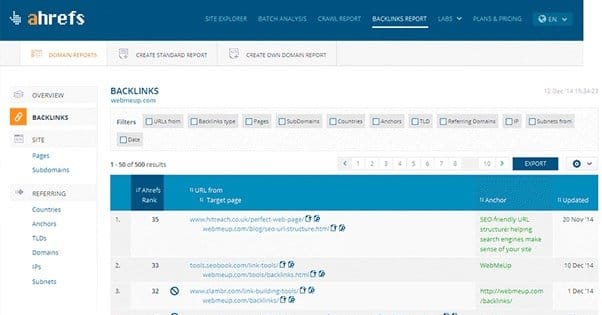Why Article Syndication is a Terrible Idea for SEO

There is some debate about article syndication on the web. One camp claims it’s fine for content marketing and SEO purposes, while another camp considers it search suicide. I, personally, am somewhere in the middle. I consider syndication as a massive trap for novice bloggers. When done properly, it can be valuable, but it’s so rarely done properly.
The Problems with Syndication
It’s easy to earn a copied content penalty. There are ways to get around this issue, but in general, people doing syndication incorrectly end up falling victim to Google Panda. Unfortunately, the typical syndication target is a small blog looking to gain exposure syndicating on a larger site. The small blog ends up earning the penalty more often than not.
Unscrupulous sites “syndicate” content in a way that is basically theft. This happened to Yahoo, of all sites; they made partnerships to syndicate content, and the other sites syndicating it abused their lack of awareness. The result was a lot of content with stripped links or nofollowed links, earning Yahoo nothing, while the other sites benefitted from essentially free content and links.
Companies often want to add money to the mix, which can be seen as paying for links. This is a problem that comes up when syndicated blog content is thrown into the mix of business deals. Google doesn’t like paying for links, and if you’re paying for syndication and getting links in exchange, it’s a double-whammy of possible penalties.
It can have a detrimental effect on your audience. One of the common theoretical issues with syndication is that the people who would read your content on your site are now able to read it on another site and have no reason to visit your site. Often this isn’t true, because the audience of your site and the audience of the syndication site are different, but it can be a consideration nonetheless.
Some readers hate seeing the same content multiple times when searching. I know I, for one, typically open up the first 3-6 Google results when I run a search. When I tab through them, I absolutely hate it when two or more of them are just the same content on different sites.
You can’t update syndicated content on other sites. This is primarily a concern if the content you’re syndicating is evergreen. You can keep your version up to date, but the version on another site – with your brand name and links attached – grows out of date. Worse, since you’re typically syndicating on sites with better SEO and a higher search ranking to benefit your own site, those sites with outdated information rank higher than your site with the updated info.
You don’t earn anything from ads on syndicated content. This is more of a minor consideration, but you can be assured that whoever is posting your content is monetizing their site, and you don’t earn a penny off their ads.
Potential Benefits of Syndication
That’s a lot of drawback, so what are the benefits?
You can reach a larger audience than you can normally. The general idea of syndication is to give you access to an audience full of people who wouldn’t normally visit your site. Some of them click through links and like your site enough to become regular visitors. Others simply read your content and notice your brand name, but don’t really pay attention.
It can be leveraged into useful backlinks. When you link to other pages on your site in the content you syndicate, those links become backlinks to your page when your content is syndicated. This needs to be done properly to give you any benefit, of course.
You build a bit of a brand reputation. The more your name or brand name is published around the web, the more reputation you begin to build. You start to be known as a widespread industry contributor, and can leverage the benefits of that status. This can also tie into Google’s author rank, as obtuse as it is.
How to Syndicate Properly
If you’re determined to syndicate, do it properly.
Avoid article directories at all costs. Article directories are an old SEO technique used to syndicate content for easy links and exposure, but they’re almost all created specifically to take advantage of content creators that don’t know better. They’re also often penalized by Google for that reason.
Use absolute URLs in any links in your content. An absolute link will always link back to your site. A relative link has no domain and will link to a page – often a missing page – on the syndicate site.
Make sure the hosts of your content don’t remove or nofollow your links. You gain nothing from links if they’re nofollowed, and you definitely gain nothing from them if they’re gone.
Make sure the hosts of your content don’t edit it in any way. When there are small differences in the content, it looks more copied and poorly spun than it looks syndicated. Plus it violates most creative licenses.
Add a rel=canonical tag to content on hosts other than your own. The canonical tag was specifically designed to combat accidental duplicate content penalties. When the syndicated site adds it to the post of yours, it tells Google that your version was the first and most real version.
Make sure your version of the content is published first. Google goes by index date more than timestamp, so you can’t post yours later and edit the timestamp to make it look earlier.
If you manage all of this properly, you can syndicate content and possibly gain some benefit from doing so. I don’t believe it’s a very good idea, though. If you really want to pull in the benefit of branded content on other sites, why not just guest post? That way you have all the benefits you get from syndication, but you have the added benefit of providing unique content. Plus, more sites are willing to post guest contributions than are willing to syndicate. The only downside is that you have to put forth the effort of writing a new post, but that’s not all that difficult.
 ContentPowered.com
ContentPowered.com





